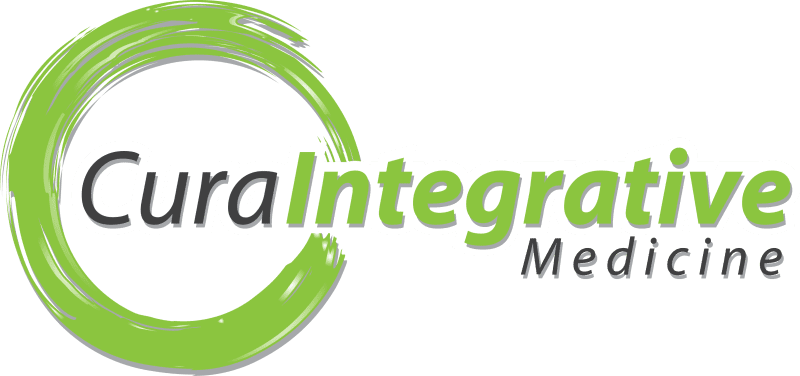Koji is a less known superfood found in a variety of macrobiotic foods. Containing Aspergillus oryzae, koji is used to make foods such as miso, amazaki and tamari. Read More…

Essential Steps to Overcome Autoimmunity
Posted 14 Oct '18
Our surroundings is creeping with bacteria, viruses, and toxins. Everything that we are exposed to, especially the air that we breathe, the things we touch, and the food we eat. When these pathogens and toxins get into our system, our body tries to fight them off through the immune system.
The onset of autoimmunity is complex and varies with each patient, but if we were to simplify it, it is caused by a reduction in waste. With the ongoing assault and ongoing build-up of “toxicity” caused by low grade infections and environmental waste, the immune system gets confused and starts attacking the body, resulting to systemic inflammation. This response then leads to an autoimmune disease.
Different Types of Autoimmune Diseases
There are several different types, depending on what part or parts of the body is affected. Here are the most common ones, out of about eighty different types:
- Rheumatoid arthritis
- Rheumatic fever
- Crohn’s disease
- Ulcerative colitis
- Type 1 diabetes (diabetes mellitus)
- Vitiligo
- Alopecia areata
- Psoriasis (psoriatic arthritis)
- MS (multiple sclerosis)
- Lupus (systematic lupus erythematosus)
- Addison’s disease
- Graves’ disease
- Hashimoto’s thyoiditis
- Vasculitis
- Schleroderma
- Autoimmune hepatitis type 1
- Coeliac disease
- Pernicious anemia/atrophic gastritis
- Sjogren’s syndrome
- Myasthenia gravis
How to Reduce Inflammation Naturally
When a patient goes to a naturopath clinic regarding a symptom that shows inflammation, normally, physicians will target it with OTC drugs such as aspirin, Advil, steroids and other medications that suppress the immune system, that lead to serious side effects. The downside is that the underlying cause of the inflammation is not given much attention. Samples of these causes are infections, allergens that may not be obvious, environmental toxins, inflammatory diet, and most common of all–stress. So, if the inflammation is a sign of a bigger condition or disease, most often, it is found out often later than sooner.
In order to get rid of the inflammation, we must identify the source. And when the body is trying to fight off an infection or stress response, and it gets confused and starts attacking its own tissues instead of the foreign invaders, this is called molecular mimicry.
It is interesting to note that majority of autoimmune disease cases are found in highly urbanised locations. If one has lots of exposure to germs, say, one grew up in a farm, or have had the woods as their playground, they are less likely to contract infections. This is because the immune system had the chance to be exposed to bacteria and viruses, and therefore got “trained” to identify which cells are foreign and which cells are from the body in the event of an infection.
Another suspected trigger is a Western diet which consists of food that has high fat, sugar, preservative and additive contents, all of which are linked to developing inflammation. However, a lot of the conventional treatments being given produces side effects and could make the patient feel even worse, instead of better. Anti-inflammatory drugs, immune suppressants, steroids, and new TNF-alpha blockers has been observed to lead to kidney failure, intestinal bleeding, osteoporosis, muscle loss, depression, psychosis, diabetes, more infections, and even cancer. If used for a short while, these drugs may still help the patient recover and get back to their normal daily lives. But if they are taken for a longer period, that’s when it starts causing further health conditions as they alter the body’s chemical balance.
Tests for Autoimmune Conditions
The following tests may help check for any autoimmune diseases:
- Test for any hidden infections. Consult with a practitioner to get your unique treatment plan.
- Test for any unknown food intolerance such as through an IgG test. There are several other types, and they differ based on the patient’s specific needs.
- Test for coeliac disease or the HLA-DQ 2/8 gene and sequences
- Heavy metal toxicity test. Heavy metal poisoning may lead to autoimmune conditions.
- Check for MARCnoS (Multiple Antibiotic Resistant Coagulase Staph) and other infection
Overcome Autoimmunity Naturally
The following may be done to overcome autoimmunity:
- Ask your practitioner about these nutrients: probiotics, fish oil, vitamins C and D. They help stabilise the body’s immune response.
- Remove from diet any foods that trigger allergies, upset stomach or any other bad reactions. You might want to get a stool test to identify pathogens to remove which will reduce digestive reactions
- Regular exercises. Physical activities help regulate hormones and reduce inflammation.
- Practice mindful meditation and deep relaxation techniques such as deep breathing, and yoga. This lessens stress, which in turn helps with the immune response.
- Best is to consult with a functional medicine practitioner to get tested and guided accordingly.





